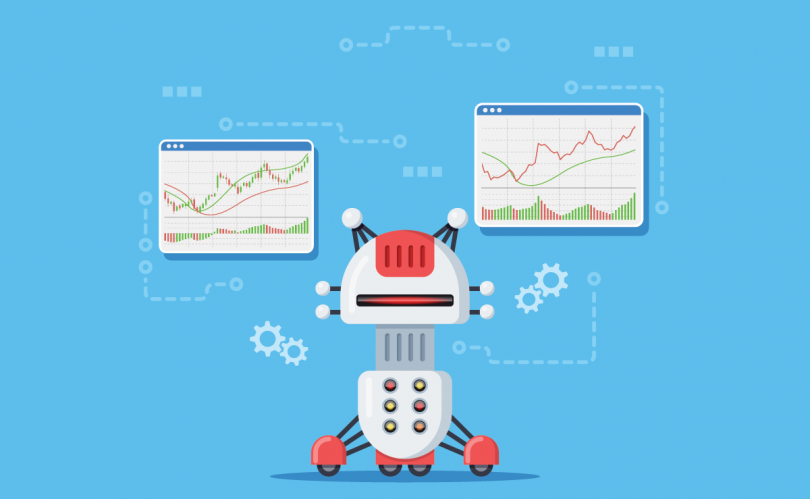Several big banks, financial institutions, and investment firms employ and invest in substantial research teams tasked with analysing and monitoring activities that could impact financial trading markets significantly. Investment research is a core competency in these institutions, and it is a critical component of what equity research analysts, portfolio managers, investors and traders anticipate to take calls.
Independent traders and investors not affiliated with major investment institutions could also leverage self-trading platforms to execute their trading and research activities. They might find it complicated to permeate through large silos of data available as historical trading records, news and media reports in many circumstances.
It is where you could harness Artificial Intelligence technology. AI can be deployed to assist traders in automatically keeping track of the most significant events and trends developing in the markets that could potentially influence their trading performance.
What is Investment and Equity Research?
It refers to the data-backed study and research about a company or business and its marketing ecosystem so that investors and traders could make a sale or purchase decision regarding investing in the company’s stock. A buyer can also apply this analysis to a potential acquisition deal to evaluate the optimum price to bid for a target company’s securities.
Equity research can embrace a wide range of disciplines, but some crucial trade insights used by analysts and researchers to make investment decisions or advise clients include,
- Financial analysis– It includes comparing the data and numbers associated with a company’s financial statements to that of the industry.
- Industry analysis– Analysing the key metrics and indicators used to forecast future prospects in the industry where the target company does business.
- Disclosures- Examine the financial statement disclosures to discover any influential anomalies that could affect the future valuation of the business’s equity.
- Projections- To produce estimates for a future timeline, blend the company’s financials with the projections and data gathered from the industry research.
The Scope of AI in Equity Research and Trading
While humans constitute an imperative element of the trading dynamic, AI is becoming incredibly influential. AI-powered analytics is used by several hedge funds throughout the world to generate investment ideas and develop portfolios. By leveraging AI in trading, advisers evaluate large chunks of data points in real-time and execute trades at the best price, analysts project markets more accurately, and trading firms effectively manage risk to deliver higher returns on capital employed.
Here are some ways of how businesses are harnessing AI for investment analysis
1. EquBot
EquBot’s patented investment platform blends AI with an active exchange-traded fund (ETF). The firm simplifies the investment procedure by aggregating and interpreting data from multiple sources like news, media stories, financial statements, etc., around the world.
2. Sentiment Investment Management
The firm uses a distributed AI system to invent quantified trading and investment techniques. The system consistently analyses and educates itself from massive datasets to build new investment strategies by merging evolving intelligence technology with deep learning algorithms.
Why is there a need for Investment Advisory Institutions to Invest in AI?
Every big financial advisory firm on the planet would prefer to begin with a comparative advantage. These institutions have massive data sets and functional expertise using analytical tools, constructing models, and managing large software development teams. Many industry leaders have already started on-boarding several data scientist teams to fuel up their research projects.
They anticipate that AI technology will most likely help them with research and trading insights. It would assist traders and investors in comprehending and identifying trends from the massive amount of public financial data and news, leveraging structured and unstructured corporate data and discovering correlations that humans may not have noticed.
Let’s talk about some of the applications of AI in financial research and trading
1. Investment Research Automation
AI algorithms could facilitate institutional, individual traders, and analysts by reducing the amount of time and human effort required for investment research chores such as due diligence, reading financial data, sentiment analysis, etc.
2. Personalised Market Intelligence
Banks and investment institutions can offer their clients and traders AI tools that can track and monitor the market trends more quickly and scalably while also providing tailored insights that take past trading records and trader risk aversion factors into consideration.
What are the significant Benefits of Investing in AI for Equity Research?
Several portfolio managers, market analysts, and traders working with investment firms devote substantial time to collect and study data about market sentiments, financial news and influential events. Financial statements, annual reports, earnings call transcripts, investor presentations, trading volumes and trends, news and social media and press releases constitute almost all the financial data.
Today, AI-backed tools can assist banks and financial institutions in augmenting the competencies and skills of their traders, clients and portfolio managers.
The key advantages of deploying AI in this domain include,
- AI tools can speed up the investment research processes by scanning over datasets on a scale that an individual trader can’t do manually.
- NLP and machine learning may assist traders and analysts by delivering AI-powered research data curation. For example, AI-assisted research for such an analyst could entail creating an algorithm that accepts the analyst’s input on the categories of news events to include.
- AI-backed systems assist banks and financial institutions in generating more revenue and enhancing the research experience for their traders and clients. Furthermore, AI systems consistently improve and update themselves over time with researcher feedback and the availability of more data for feeding and processing. It boosts the accuracy levels, speed of trade execution and in-depth research.
The Bottomline
The finance industry has always been the earliest adopter of every new, relevant technology introduced to the world, especially AI and Data Analytics. Large businesses in this sector have accumulated considerable volumes of historical data and have already created a software development infrastructure to harness process automation advantages through rule-based algorithms.
There are numerous commercialised AI technologies of varying complexity geared to trading firms and financial institutions. However, it is necessary to remember that the human resource engagement in these venture
s could be enormous. AI technology can be harnessed to the fullest only when compounded with the human brain, boosting and supplementing the performance of human analysts and traders. Eventually, extremely complicated assignments are best suited to collaboration between humans and machines, with each playing to their respective strengths.



Leave a Reply